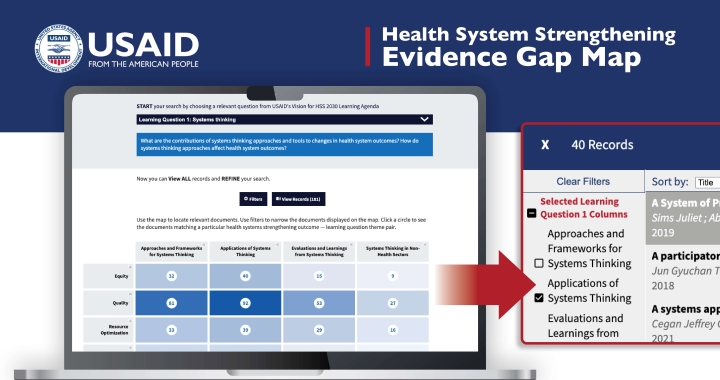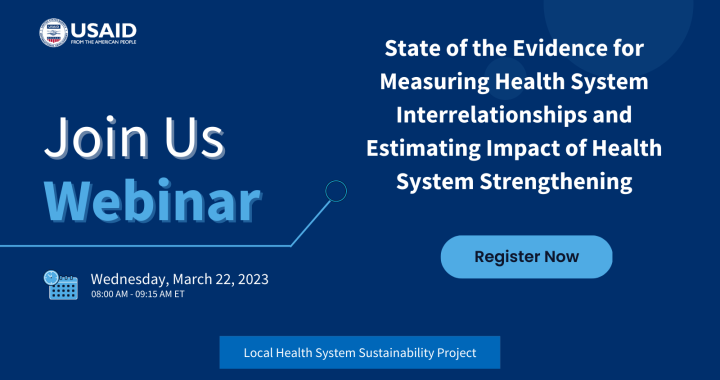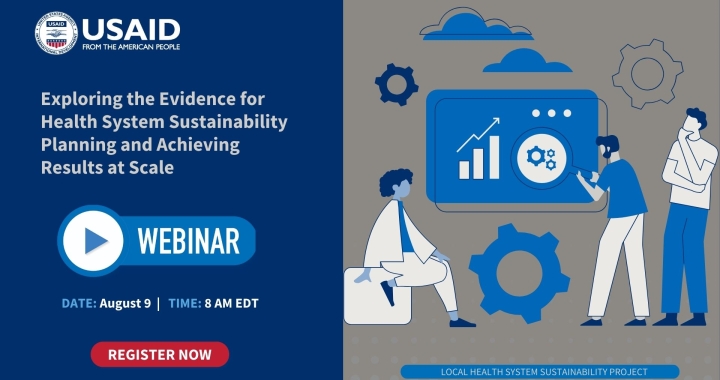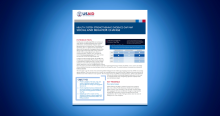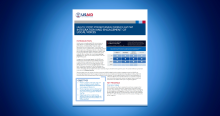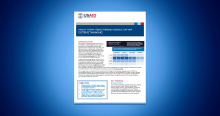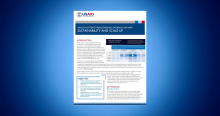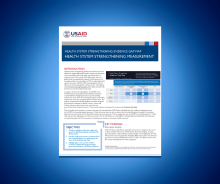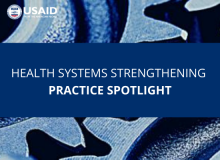HSS Evidence Gap Map
LHSS contributes to USAID’s HSS Learning Agenda by developing and maintaining the HSS Evidence Gap Map. This Mapping identifies existing literature examining the impact of health systems strengthening on health outcomes, helping to inform and improve future interventions.
Knowledge Products
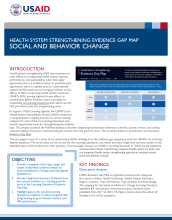
This two-pager focuses on USAID’s Learning Question 6, "What are key behavioral outcomes that indicate a functioning, integrated health system? In what ways can integrated health system strengthening approaches explicitly include social and behavior change?"
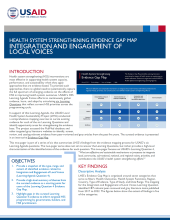
This two-pager focuses on USAID’s Learning Question 4, “What are effective and sustainable mechanisms or processes to integrate local, community, sub-national, national, and regional voices, priorities, and contributions into USAID’s health system strengthening efforts?”
This two-pager focuses on USAID’s Learning Question 1, “What are the contributions of systems thinking approaches and tools to changes in health system outcomes? How do systems thinking approaches affect health system outcomes?”
This two-pager focuses on USAID’s Learning Question 5, “What are effective and sustainable mechanisms or processes that enable the participation of private sector, civil society, and public organizations in developing locally-led solutions to improve high-performing health care, especially for poor and vulnerable populations? What enables the effective participation or leadership of marginalized populations themselves in the development and implementation of these solutions? Under what conditions is this participation different?”
This two-pager focuses on USAID’s Learning Question 2, “What conditions or factors successfully facilitate the institutionalization and/or implementation at scale of good practices that improve health system outcomes, and why? What are lessons learned regarding planning for sustainability and achieving results at scale?”
This two-pager focuses on USAID’s Learning Question 3, “What measurement tools, approaches, and data sources, from HSS or other fields, are most helpful in understanding interrelationships and interactions, and estimating impact of HSS interventions on health system outcomes and priority health outcomes?”

This Practice Spotlight brief describes outcome harvesting, a monitoring, evaluation, research, and learning approach that can help tease out the specific impacts of HSS interventions conducted in complex environments, where many factors may influence an outcome.
This Practice Spotlight brief describes contribution analysis, a monitoring, evaluation, research, and learning approach well-suited for examining the effects of HSS interventions conducted in complex environments, where the causes of change are multifaceted and difficult to trace.

